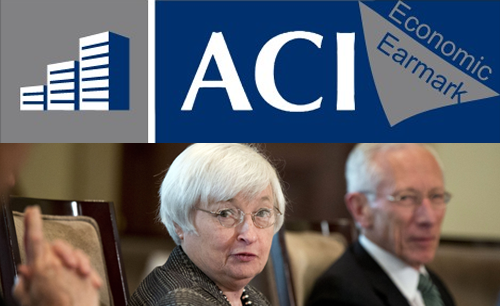This article was originally posted by Binyamin Appelbaum, NYT News Service
CAMBRIDGE, Mass. – Janet L. Yellen, the Federal Reserve chairwoman, said Friday that the Fed was on track to raise its benchmark interest rate “in the coming months,” reinforcing a recent effort by central bank officials to prepare investors for higher borrowing costs.
Yellen said the Fed wanted to see evidence the economy was rebounding from a weak winter before it acted, but she added that evidence was beginning to pile up.”
Growth looks to be picking up from the various data that we monitor, and if that continues and if the labor market continues to improve – and I expect those things will occur,” then it would be appropriate to raise rates, Yellen said. She spoke before receiving the Radcliffe Medal in a ceremony at Harvard University.
Fresh evidence has emerged that the economy is improving after a slow start to the year, as resilient consumer spending and a buoyant housing market help to overcome a drop in investment by cautious companies.
The Fed has moved forcefully in recent weeks to convince investors that it could raise rates as soon as its next meeting, June 14 and 15. An account of the Fed’s most recent meeting, in April, said it was thinking about a June increase, and several of Yellen’s colleagues have made the point explicitly in recent speeches.The central bank also has scheduled meetings in late July and in mid-September.
Markets had all but written off a summer increase, particularly after Yellen gave a speech in late March notably lacking urgency. But the new message has come through clearly. A measure derived from asset prices shows that investors now see almost a 75 percent chance of a rate increase by September.
The Fed has held interest rates at low levels since the Great Recession, to stimulate economic growth by encouraging borrowing and risk-taking. It started raising rates in December, seeking to reduce those incentives. But it paused as the economy appeared to weaken. Now it seems ready to continue.
Yellen spoke during a question-and-answer session with N. Gregory Mankiw, a professor of economics at Harvard who was an economic adviser to President George W. Bush. Mankiw asked if Yellen had any message for investors, whom he described as eager to begin their holiday weekend. He added that she could simply decline and move on.
But Yellen did not want to avoid the question.
“Let me say a few sentences, so I won’t delay them very long,” she began, before describing her view that the economy appeared to be gaining strength. She said that the Fed wanted to “gradually and cautiously” increase its benchmark rate, and that “probably in the coming months such a move would be appropriate.”
Some of Yellen’s colleagues have suggested they do not expect to wait until September.”The June-July time frame is a reasonable expectation,” William C. Dudley, president of the Federal Reserve Bank of New York, said early this month.Others have sounded slightly more cautious. Jerome H. Powell, a Fed governor, said Thursday that he wanted to see “significant strengthening” in economic activity.”Depending on the incoming data and the evolving risks, another rate increase may be appropriate fairly soon,” Powell said in a speech in Washington.
Yellen’s remarks on current policy were a brief interlude in an event largely devoted to celebrating her career. Ben S. Bernanke, the former Fed chairman, introduced Yellen, lauding her as “consistently prescient” in her economic analysis and “forceful” in her advocacy for the Fed’s stimulus campaign after the financial crisis.
He also teased Yellen for her habit of arriving very early at airports. Caution was a desirable quality in a central banker, he said. But he joked that Yellen’s security detail had been unable to convince her that sirens and flashing lights and the ability to skip security meant she no longer needed to arrive quite so early.
Yellen responded that America owed Bernanke “an enormous debt of gratitude” for leading the Fed’s response to the financial crisis, which she called “nothing short of magnificent.”
But in a panel discussion before Yellen’s appearance, several leading academics painted a fairly bleak picture of the economy as it has emerged from the crisis.
Lower-income Americans have seen “little improvement in income, little improvement in health, little improvement in life expectancy,” said Louise Sheiner, a fellow at the Brookings Institution. “No wonder there’s so much anger out there.”
Douglas W. Elmendorf, dean of Harvard’s Kennedy School, said policymakers had a responsibility not only to spur growth but to reduce economic inequality.”
We tend to talk in this country about the importance of overall economic growth,” he said. “That logic, that focus on overall growth, worked best in the period when a rising tide lifted all boats.”
In an era of yawning inequalities, he said, “We need to be more explicit about our distributional concerns.”
This article was originally posted by the San Diego Daily Transcript and can be found HERE.



